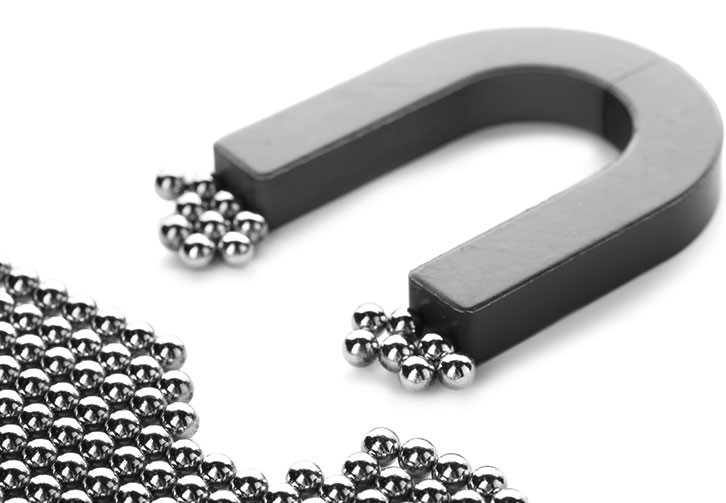One of the things I enjoy most about teaching is not only engaging with students about the subject at hand but also how it may contain deeper lessons that apply to their life and work. The class readings are a reliable vehicle to those insights. One of my favorite insights recently comes from Paul Graham, the programmer, entrepreneur, writer, and investor behind the acclaimed tech startup accelerator, Y Combinator. In his article, “How to Do What You Love,” he writes about the dangers of prestige and the prestige magnet:
“You shouldn’t worry about prestige. Prestige is the opinion of the rest of the world. This is easy advice to give. It’s hard to follow, especially when you’re young. Prestige is like a powerful magnet that warps even your beliefs about what you enjoy. It causes you to work not on what you like, but what you’d like to like.”
-Paul Graham

This notion of a prestige magnet has stuck with me (and many of my students), in part because I think it’s so universal and insidious.
The peril of the prestige magnet is that it can pull us into a strange and unhappy vortex in which we’re avidly pursuing prestige while making ourselves—and often those around us—miserable in the process. A dangerous downward spiral.
Signs of the Prestige Magnet in Action
You may think that you’re not susceptible to the pull of the prestige magnet. You may be thinking, I’m not self-centered. I’m not overly ambitious or too concerned about status and prestige.
Most likely, though, you’d be wrong. Our brains are brilliant at helping us deceive ourselves.
“There are two kinds of egotists: Those who admit it, and the rest of us.”
-Laurence J. Peter

Here are some telltale signs of the prestige magnet in action:
- Wanting a pair of cool sneakers or jeans to impress your friends when you’re a teenager.
- Enjoying the signaling of social status through the car you drive, the part of town you live in, or where you go on vacation—and the attendant social media posts broadcasting it.
- Secretly hoping that or enjoying it when your degree, profession, title, or organization conveys status to you.
Let’s be honest. We all want prestige—or have wanted it at some point. It’s baked into human nature.
In a recent “How to Build a Life” column for The Atlantic, Arthur Brooks notes recent studies indicating that the biggest goal in life for American children aged 10 to 12 is fame, and a survey of British children found that “YouTuber” was the most coveted career choice.
Evolutionary psychologists note that we can acquire social status either through dominance or prestige (or both). It’s important because high-status individuals tend to receive more protections from their social group, appear more attractive (giving them reproductive advantages), obtain more resources, and have better health and longevity.
Meanwhile, many of us go through an education system that points to prestige pursuit as the standard recommended option (so ingrained that it’s often simply assumed and not even explicit), and we live in a culture that prizes, and sometimes idolizes, status and wealth.

Take the Traps Test
We all fall into traps in life. Sometimes we’re not even aware of it, and we can’t get out of traps we don’t know we’re in. Evaluate yourself with our Traps Test.
How the Prestige Magnet Can Warp Our Lives
Clearly, there are advantages of social status, and we shouldn’t hold it against people for deriving benefits from their hard work, commitment, courage, or creativity. Far from it.
But there are also disadvantages, some of which are not only costly but also underappreciated.
Here are nine of the main disadvantages:
1. Career Choices
The prestige magnet can keep us from doing what we really want to do, or what we’re better suited to do, or from pursuing our dreams. It can pull us into career fields for the wrong reasons that don’t hold up over time, and with high switching costs (or even a sort of lock-in effect). I recall how popular and prestige-soaked the fields of consulting and investment banking were when I was getting my MBA. The point isn’t that there’s anything wrong with those professions but rather whether those jobs were a good fit for all those classmates and whether there wasn’t a phenomenon of social contagion at work. (And yes, I dipped my toes in those waters too. Let me be clear: I struggle with this trap, among many others, as well.)
2. Addiction
We can become addicted to the pursuit of prestige and its close cousins (success, fame, wealth, etc.), with all the implications that addictions carry, including crowding out other important areas of our lives, like health, relationships, and peace of mind.
3. Happiness Effects
By pursuing prestige, aren’t we placing parts of our happiness and sense of self-worth into the hands of others, including people we don’t even know or like?
4. The Expense
Pursuing prestige can be expensive, from costly universities to the pricey cars, homes, neighborhoods, and lifestyles that put us on a financial hamster wheel, sprinting to try to keep up. Getting nowhere fast. It can be exhausting—and financially precarious if things go awry.

5. Hidden Costs
Prestige often comes with hidden costs, including:
-
- feeling trapped in jobs we don’t like, sometimes with colleagues or bosses we don’t like
- working excessive hours (many prestigious firms pride themselves on this, as a sort of twisted bragging right)
- burying ourselves in spreadsheets or presentation decks
- wondering if our sacrifices are worth it
- experiencing stress, anxiety, or depression
6. Career Damage
Those who are chasing status and prestige can come across as self-centered and self-serving, which can impair their teamwork and leadership effectiveness, because it’s off-putting. It can even take people on a path to becoming a toxic leader.
7. Identity Effects
If we’re consumed by a hunger for status and prestige during our career, where is that likely to leave us when we retire or if we change jobs or need to stop working? Are we okay with who we are even without the recognition or status? Do we need to be viewed as successful to feel content or happy?
8. Relationship Pain
Being in hot pursuit of prestige can keep us away way too much from those we love, from our spouse or significant other to our children, parents, or close friends. How will we view those tradeoffs and compromises later in life?
9. Regret
Following the prestige path is likely to lead to painful regret down the road, with a rude reckoning for our choices.
We can note here that many of these disadvantages, in the larger scheme of things, are problems of privilege. Many people struggle with much nastier problems, like surviving and feeding their families. Still these problems of the prestige magnet come with real pain and damage for many, and they’re found on all levels of the socioeconomic spectrum.
So now we must ask, what to do about it?

Quality of Life Assessment
Evaluate your quality of life in ten key areas by taking our assessment. Discover your strongest areas, and the areas that need work, then act accordingly.
How to Demagnetize the Prestige Magnet
From science class, we may recall that physical magnets can be demagnetized via certain techniques. For example, via high heat. Or a reverse field. We can even hammer the magnetism out of it. Best of all, we can leave the magnet untouched for long periods of time, and demagnetization will occur naturally over time. Like magic.

The prestige magnet can also be altered. Here are ten ways to address it:
1. Why
Step back and consider why you’re pursuing prestige, including whether there’s some sort of pain, loss, or hurt in your life that you’re trying to numb—and whether you might address it better by going to its roots.
2. Who
Think more critically about who you’re trying to impress. Who are they? How much do they truly matter to you? How likely is it that they’ll matter to you long in the future? Are they really so concerned about you, or are they more likely to be caught up in their own concerns, including their own prestige magnet?
3. Work
Instead of dwelling on how you stack up, focus on the work itself. Get lost in the process and concentrate on creating value for the intended beneficiaries. Become a craftsman and focus on slow, steady, and systematic improvement.
4. People
Spend your time with people who are comfortable with who they are regardless of the vagaries of status—and who care more about your heart and soul than your status and prestige.
5. Service
Serve others. Leave the prestige pursuit behind and focus on helping others. Be part of a community and contribute to something larger than your own personal wants, needs, and insecurities. If you’re in a position of authority, consider practicing servant leadership, a counterintuitive and revolutionary approach to leadership that emphasizes serving others first, including developing them and helping them accomplish things they never thought possible.
6. Purpose
Discover and pursue your purpose, or something that feels significant or meaningful to you, or that captures your heart. This will get your out of your head and into a project or endeavor that motivates you and benefits others. If you’re in a position of authority, consider taking on our triple crown leadership quest—a commitment to building an organization or team that’s excellent (achieving exceptional results and positive impacts for all stakeholders), ethical (doing the right thing, even when it’s costly or hard), and enduring (standing the test of time and operating sustainably).
7. Gratitude
Be grateful for what you have. Incorporate gratitude practices (e.g., prayers of thanksgiving, meditation, a gratitude jar) into your life. And determine what is enough for you so you don’t catch the “disease of more.”
8. Creation
Build or create something: a side hustle, blog, passion project, memoir, garden, novel, startup, or social venture—whatever captures your interest and gets you lost in a state of flow.
9. Mortality
Think about your death. That’s right. As morbid as it is, remembering that you’re mortal—and given an unknown time span on this Earth—can help you remember what’s truly important in life—and what’s not.
10. Resolve
Decide and declare that you don’t need validation from others to determine your worth. Change your focus from worrying about what others may think of you to putting your head down and being the best person you can be, growing and giving as best you can every day.
The prestige magnet has its pull on many of us these days. Thankfully, though, there are many things we can do to dull its effect while still thriving in our chosen endeavors.
Reflection Questions
- How strong is the prestige magnet in your life?
- What can you do to reduce its downsides without eliminating its upsides?
Tools for You
- Traps Test (Common Traps of Living) to help you identify what’s getting in the way of your happiness and quality of life
- Quality of Life Assessment to help you discover your strongest areas and the areas that need work and then act accordingly
- Personal Values Exercise to help you clarify what’s most important to you

Personal Values Exercise
Complete this exercise to identify your personal values. It will help you develop self-awareness, including clarity about what’s most important to you in life and work, and serve as a safe harbor for you to return to when things are tough.
Related Traps
This prestige magnet trap doesn’t exist in a vacuum. It’s related to many of the other traps we’ve been addressing this traps series, including:
- Caring Too Much about What Other People Think
- Being Trapped by Success
- When Your Identity Is Wrapped Up Too Much in Your Work
- Not Having Margin in Your Life
- The Disease of More
- Golden Handcuffs
- The Conformity Trap
- Deferring Dreams and Postponing Happiness
- The Comparison Trap
- The Short Game
- The Trap of Not Being Grateful for What We Have
- The Wrong Path
Postscript: Inspirations on Prestige and Ego
- “Ego is the enemy.” -Ryan Holiday, writer
- “The bigger your heart, the more you love, the more you control your life. The bigger your ego, the more you’re scared, the more others control your life.” -Maxime Lagacé
- “Egotism sucks us down like the law of gravity.” -Cyril Connolly
- “Don’t worry about looking good; worry about achieving your goal.” -Ray Dalio
- “The only way to escape the corruptible effect of praise is to go on working.” -Albert Einstein, German-born theoretical physicist
- “We must do our work for its own sake, not for fortune or attention or applause.” -Steven Pressfield, The War of Art
- “Avoid having your ego so close to your position that when your position falls, your ego goes with it.” -Colin Powell, U.S. Army officer, statesman, and diplomat
- “Prestige is especially dangerous to the ambitious.” -Paul Graham, investor
- “When the ego dies, the soul awakes.” -Mahatma Gandhi, Indian lawyer and transformational leader
- “The foundation of the Buddha’s teachings lies in compassion, and the reason for practicing the teachings is to wipe out the persistence of ego, the number-one enemy of compassion.” -Tenzin Gyatso, 14th Dalai Lama
- “The ego is a veil between humans and God. In prayer all are equal.” -Rumi, 13th century poet and Sufi mystic

Gregg Vanourek’s Newsletter
Join our rapidly growing community. Sign up now and get monthly inspirations (new articles, opportunities, and resources). Welcome!
++++++++++++++++++++++++++++++
Gregg Vanourek is a writer, teacher, TEDx speaker, and coach on leadership and personal development. He is co-author of three books, including LIFE Entrepreneurs: Ordinary People Creating Extraordinary Lives (a manifesto for integrating our life and work with purpose, passion, and contribution) and Triple Crown Leadership: Building Excellent, Ethical, and Enduring Organizations (a winner of the International Book Awards). Check out his Best Articles or get his monthly newsletter. If you found value in this article, please forward it to a friend. Every little bit helps!

